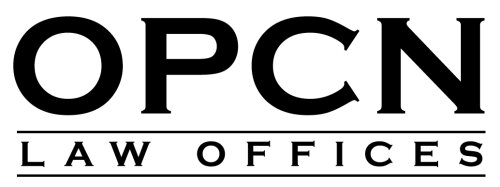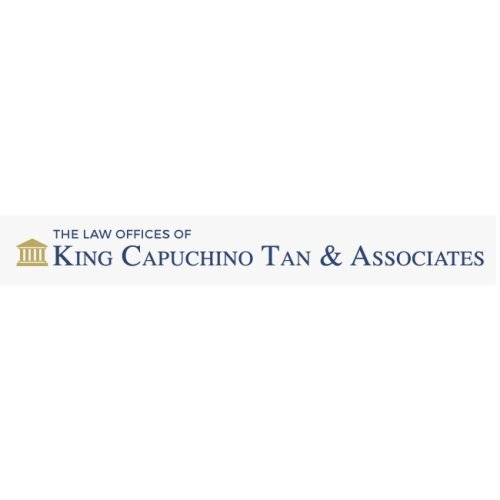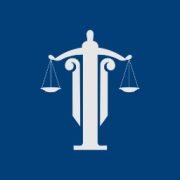Best Energy Regulatory Law Lawyers in Quezon City
Share your needs with us, get contacted by law firms.
Free. Takes 2 min.
List of the best lawyers in Quezon City, Philippines
About Energy Regulatory Law in Quezon City, Philippines
Energy Regulatory Law in Quezon City refers to the legal framework that manages the generation, distribution, and use of energy resources, including electricity and petroleum. The primary goal is to ensure that energy services are provided in a manner that is efficient, fair, and in line with national and local directives. This area of law covers a range of activities such as licensing, rate setting, compliance with safety and environmental standards, and dispute resolution between energy providers and consumers. In the Philippines, the Energy Regulatory Commission (ERC) serves as the principal government body overseeing these activities, while relevant local government units like Quezon City work in coordination to enforce energy policies within their jurisdiction.
Why You May Need a Lawyer
Navigating energy regulations can be complex, especially for businesses and consumers in Quezon City. You may need a lawyer if you encounter issues such as disputed electricity bills, complaints about power supply interruptions, regulatory compliance matters for energy-related businesses, renewable energy projects, or concerns over utility rates or service practices. Lawyers are also essential when dealing with government agencies, negotiating power supply contracts, or appealing ERC decisions. Energy Regulatory Law attorneys can represent your interests, ensure compliance, and help protect your rights whether you are an individual consumer, a business, a utility provider, or a developer seeking to engage in the energy sector.
Local Laws Overview
The energy sector in Quezon City is governed by national laws, regulations from the Department of Energy (DOE), and local ordinances. The Electric Power Industry Reform Act (EPIRA) is the main law shaping reforms in electricity, promoting market competition, and protecting consumer interests. The Renewable Energy Act supports the development of alternative energy sources. Local ordinances may address specific concerns such as energy conservation, support for renewable energy adoption, and the regulation of local distribution utilities. The ERC ensures rates are fair, services are reliable, and both providers and consumers comply with safety and operational standards. Quezon City also implements initiatives related to energy efficiency, environmental protection, and local power supply reliability.
Frequently Asked Questions
What is the role of the Energy Regulatory Commission (ERC) in Quezon City?
The ERC regulates and supervises the electricity sector, including the approval of power rates, granting licenses, and enforcing compliance with energy regulations. Its authority extends to all regions of the Philippines, including Quezon City.
Can consumers file complaints about electric service providers?
Yes, consumers can file complaints with the ERC or the local government. Issues may include billing disputes, service interruptions, or perceived unfair practices by providers.
How are electricity rates determined?
Electricity rates are reviewed and approved by the ERC based on submissions from distribution utilities, considering operational costs, investments, and a reasonable return on investment.
Do local governments in Quezon City have power over energy regulations?
Local governments implement national energy policies and may issue ordinances for energy efficiency measures, but major regulatory oversight remains with the ERC and DOE.
What should I do if I want to install solar panels at my home or business?
You must comply with building and electrical codes, and coordinate with your local distribution utility for interconnection. Certain incentives may be available under the Renewable Energy Act.
What permits are needed to engage in the energy business in Quezon City?
You need approval from national authorities such as the ERC and DOE, as well as local permits from Quezon City Hall for operations, construction, and safety compliance.
Are there incentives for renewable energy projects?
Yes, the Renewable Energy Act provides tax incentives, duty-free imports of equipment, and support for renewable energy initiatives.
How do I report illegal electricity connections or pilferage?
You can report such incidents to the local utility provider, the ERC, or the Quezon City local authorities. Tampering with electricity is a criminal offense.
Can a business negotiate its power supply terms?
Businesses may negotiate power supply agreements with licensed suppliers, within the framework set by the ERC and relevant laws. Legal assistance can help ensure your interests are protected.
What should I do if I disagree with a decision from the ERC?
You can file a motion for reconsideration with the ERC or appeal to the appropriate court. Legal representation is highly recommended in such cases.
Additional Resources
Some helpful resources and government bodies for energy regulatory matters in Quezon City include:
- Energy Regulatory Commission (ERC)
- Department of Energy (DOE)
- Quezon City Hall - Business Permits and Licensing Office
- Local electric distribution utilities (such as Meralco)
- Philippine Electricity Market Corporation (PEMC)
- Integrated Bar of the Philippines (IBP) - Quezon City Chapter
- Civil society groups focusing on energy and consumer rights
Next Steps
If you believe you need legal assistance with an energy regulatory issue in Quezon City, start by clearly documenting your concerns and gathering any relevant documents, such as contracts, bills, or official notices. Consult with a qualified lawyer who specializes in energy regulation. Many law firms and legal aid groups offer initial consultations. You can also contact the ERC for preliminary guidance. Be proactive in seeking advice to avoid complications and ensure your rights and interests are fully protected.
Lawzana helps you find the best lawyers and law firms in Quezon City through a curated and pre-screened list of qualified legal professionals. Our platform offers rankings and detailed profiles of attorneys and law firms, allowing you to compare based on practice areas, including Energy Regulatory Law, experience, and client feedback.
Each profile includes a description of the firm's areas of practice, client reviews, team members and partners, year of establishment, spoken languages, office locations, contact information, social media presence, and any published articles or resources. Most firms on our platform speak English and are experienced in both local and international legal matters.
Get a quote from top-rated law firms in Quezon City, Philippines — quickly, securely, and without unnecessary hassle.
Disclaimer:
The information provided on this page is for general informational purposes only and does not constitute legal advice. While we strive to ensure the accuracy and relevance of the content, legal information may change over time, and interpretations of the law can vary. You should always consult with a qualified legal professional for advice specific to your situation.
We disclaim all liability for actions taken or not taken based on the content of this page. If you believe any information is incorrect or outdated, please contact us, and we will review and update it where appropriate.















